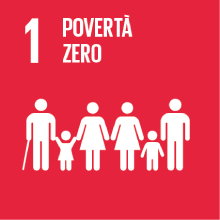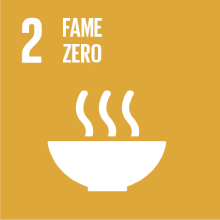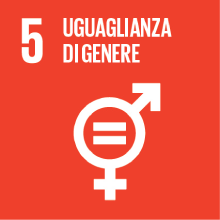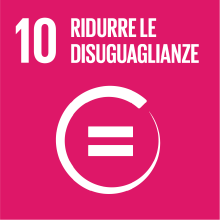HISTORY OF INTERNATIONAL RELATIONS
- Anno accademico
- 2018/2019 Programmi anni precedenti
- Titolo corso in inglese
- HISTORY OF INTERNATIONAL RELATIONS
- Codice insegnamento
- LM3140 (AF:285479 AR:157266)
- Modalità
- Crediti formativi universitari
- 6
- Livello laurea
- Laurea magistrale (DM270)
- Settore scientifico disciplinare
- SPS/06
- Periodo
- I Semestre
- Anno corso
- 1
- Sede
- VENEZIA
- Spazio Moodle
- Link allo spazio del corso
Inquadramento dell'insegnamento nel percorso del corso di studio
Risultati di apprendimento attesi
a) manage confidently the main events and concepts pertaining to the history of the international political economy from the 1970s to the present, including issues such as international debt "crises", the evolution of the international monetary system from Bretton Woods to the present, and the relationship between these and major diplomatic and military events of the period;
b) display a confident knowledge of the most updated literature on the subject, including the ability to critically compare diverging views and approaches;
c) read and interpret original diplomatic documents, and to make use of such ability in the preparation of their own research projects;
d) communicate their work and research in English and take part in a debate about these topics;
e) consolidate their competence in the field of international history in an autonomous and self-organized manner.
Prerequisiti
Ennio Di Nolfo, Dagli imperi militari agli imperi tecnologici, Laterza, 2007 (or later editions)
Guido Formigoni, Storia della politica internazionale nell'età contemporanea, Il Mulino (2006 or later editions)
Antonio Varsori, Storia Internazionale, Il Mulino, 2014
Anthony Best et al., Storia delle relazioni internazionali, UTET, 2013
William Keylor, "A world of nations", Oxford University Press, 2009 (or later editions)
Anthony Best et. al, International History, Routledge, 2008 (or later editions)
John W. Young and John Kent, International Relations Since 1945, OUP, 2013 (or later editions)
Jean-Baptiste Duroselle and André Kaspi, Histoire des relations internationales de 1945 à nos jours, Armand Colin, 2017
Of course, the most complete textbook on the subject remains Ennio Di Nolfo, Storia delle relazioni internazionali, Laterza, 2008 (or later editions)
Contenuti
Testi di riferimento
Charles Maier, "Among Empires", 2007, pp. 228-284
Philip Golub, "Power, profit and prestige", 2010, pp. 63-103
Daniel Sargent, "The US and globalization in the 1970s", 2010, pp. 45-65
Peter Gowan, "The Global Gamble", 1999, pp. 19-38
Giovanni Arrighi, “The world economy and the Cold War, 1970-90”, 2010, pp. 23-44
Giuliano Garavini, “From Boumedienomics to Reaganomics”, 2015, pp. 79-92
William Glenn-Gray, “Learning to Recycle”, 2016, pp. 172-192
David Spiro, "The hidden hand of American hegemony", 1999, pp. 80-126
Silvio Pons, “The Rise and Fall of Eurocommunism”, 2010, pp. 45-65
Duccio Basosi and Giovanni Bernardini, “The Puerto Rico Summit”, 2008, pp. 256-267
Duccio Basosi, “The European Community and International Reaganomics”, 2013, pp. 133-152
James Boughton, "Silent Revolution", 2001, pp. 266-281
Vijay Prashad, “The darker nations”, 2007, pp. 191-244
Stephen Kotkin, "The Kiss of Debt", 2010, pp. 80-93
Duccio Basosi, “A missing cold war?”, 2011, pp. 208-228
Please note #1: all the readings are available in the Ca' Foscari libraries and will be made available at the beginning of the course in the moodle page of the class: https://moodle.unive.it/course/view.php?id=2087 .
Please note # 2: students who do not attend the class regularly, are invited to add one of the following volumes to the study list:
Duccio Basosi, "Finanza e petrolio", 2012
Daniel Sargent, "A superpower transformed", 2016
Modalità di verifica dell'apprendimento
The written exam is a short essay on a question provided by the teacher, asking students to use various parts of the program in the construction of their answers. The written exam is "open notes, open books", that is students may consult their study material and refer to it (provided that they cite it appropriately). It has a duration of three hours. It aims at verifying the preparation of the students on the topics of the course (facts, dates, names, definitions, concepts), their capacity to organize and communicate their knowledge (completeness, synthesis, consistency, clarity, precision) and their ability to link, where pertinent, different themes among those raised by the analysis of the international political political economy of the period 1970s-present. In the written exam the students will have to display their:
a) ability in rendering a coherent picture concerning the main events that have marked the development of international political economy from the 1970s to the present;
b) knowledge of the origins and dynamics of the main historical process of the period under examination (fall of Bretton Woods; post-Bretton Woods negotiations; the "oil crisis" and its consequences; petrodollar recycling; financialization; the North-South dialogue and confrontation; the "second cold war"; the "international debt crisis"; the crisis and fall of the Soviet Union);
c) knowledge of the different interpretations of historical facts in connection with various types of sources available to the historian;
d) ability to make use of the historical categories discussed in the readings and in class;
e) ability to discuss critically the different interpretations of specific events and processes as they result from the program readings;
f) ability to develop their own reflections on the topics of the course.
The oral exam has an average duration of 20 minutes and aims at discussing any critical point emerging from the written exam. If needed, the oral exam can also be the occasion to verify the student's knowledge of the basic facts and concepts of international history.
Please note #1: the inability to locate the specific events discussed in the course in the broader context of the international history of the 20th century (as from the Requirements section above) constitutes a reason for not passing the exam.
Please note #2: Around the 8th week of the course, during the regular class time the teaching activity foresees a non-mandatory written test of the duration of 90 minutes, open to all students, in order to enable students to familiarize with the type of work that will be demanded at the final written exam (same kind of question, same rules). The date of the test will be communicated in advance on the teacher's announcements page. The test will receive a score between 0 and 3 and the score will be added, in case, to the grade obtained in the final exam.
Metodi didattici
Lingua di insegnamento
Altre informazioni
2) Ca’ Foscari abides by Italian Law (Law 17/1999; Law 170/2010) regarding support services and accommodation available to students with disabilities. This includes students with mobility, visual, hearing and other disabilities (Law 17/1999), and specific learning impairments (Law 170/2010). If you have a disability or impairment that requires accommodations (i.e., alternate testing, readers, note takers or interpreters) please contact the Disability and Accessibility Offices in Student Services: disabilita@unive.it.
Modalità di esame
Obiettivi Agenda 2030 per lo sviluppo sostenibile
Questo insegnamento tratta argomenti connessi alla macroarea "Povertà e disuguaglianze" e concorre alla realizzazione dei relativi obiettivi ONU dell'Agenda 2030 per lo Sviluppo Sostenibile




